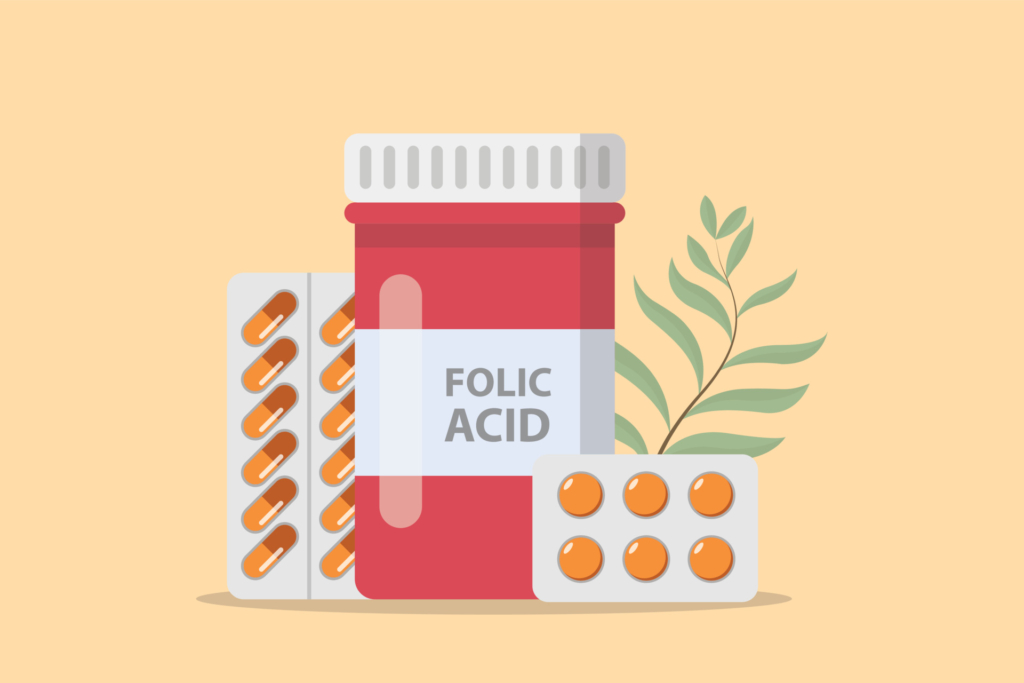Introduction to Prenatal Vitamins
Pregnancy is a time of profound change—for both body and mind. As your little one grows, your nutritional needs evolve too. While a balanced diet lays the foundation, prenatal vitamins serve as a safety net, filling gaps and ensuring both you and baby receive essential nutrients. Think of them as your daily shield against deficiencies that could affect fetal development or maternal well-being.
But with so many options on the market—from gummies to prescription blends—how do you decide which prenatal vitamin is right for you? In this comprehensive guide, we’ll break down the different types of prenatal vitamins, explain critical nutrients, and provide expert tips on choosing the perfect formula. By the end, you’ll feel empowered to select a supplement tailored to your unique journey.
Whether you’re planning to conceive or are already in your second trimester, understanding prenatal vitamins is key. Let’s explore why these supplements matter and how they support a healthy pregnancy from day one.
Ready to dive in? Let’s get started with the “why” behind prenatal vitamins.
Why Prenatal Vitamins Matter
Filling Nutritional Gaps: Even the most nutrient-dense diets can leave gaps. Soil depletion, dietary restrictions, and morning sickness can all impact nutrient intake. Prenatal vitamins ensure consistent delivery of crucial vitamins and minerals like folic acid, iron, and calcium.
Supporting Baby’s Development: Certain nutrients, such as folate and DHA, play vital roles in neural tube formation and brain development. Adequate levels in early pregnancy have been linked to reduced risk of birth defects and improved cognitive outcomes later in life.
Protecting Maternal Health: Pregnancy places extra demands on a woman’s body. Iron supports increased blood volume, while calcium helps maintain bone strength. Without supplementation, moms can experience anemia, bone density loss, or elevated risk of hypertension.
Peace of Mind: There’s comfort in knowing you’re taking proactive steps for a healthy pregnancy. Prenatal vitamins act as a nutritional “insurance policy,” especially when cravings or aversions make balanced meals challenging.
Types of Prenatal Vitamins
Multivitamin vs. Single-Nutrient Supplements
Most expectant mothers opt for a broad-spectrum prenatal multivitamin, which combines essential vitamins and minerals in one pill. Multivitamins simplify dosing and cover a wide range of nutrients—from B vitamins for energy metabolism to vitamin D for immune support.
In contrast, single-nutrient supplements focus on one element, such as iron or DHA. These are useful if lab tests reveal a specific deficiency, but they can be cumbersome if you need multiple bottles. Talk with your healthcare provider to determine if you require targeted supplementation beyond a standard multivitamin.
For example, if routine blood work shows low ferritin (iron storage), your provider may recommend an extra iron tablet in addition to your daily prenatal multivitamin. This two-pronged strategy ensures you meet both general and specialized needs without overloading on unnecessary ingredients.
Prescription vs. Over-the-Counter (OTC)
Prescription prenatal vitamins often contain higher doses of certain nutrients or formulations targeted to high-risk pregnancies. For instance, women with a history of neural tube defects or multiple gestations may be prescribed increased folate or iron levels.
OTC options, by contrast, are readily available at pharmacies and grocery stores. They must meet FDA guidelines for prenatal supplements but typically cap nutrient levels at standard recommendations. If you have unique medical needs, prescription prenatals offer personalized formulations under your doctor’s supervision.
Keep in mind: even OTC prenatals vary widely in price and ingredient quality. Look for reputable brands that disclose ingredient sources and undergo third-party testing.
Gummies, Chewables & Liquids
Gummies and chewables have surged in popularity due to their appealing taste and ease of swallowing. However, they often lack iron or deliver lower doses of certain B vitamins because higher concentrations can affect texture and flavor.
Liquid prenatals provide flexibility in dosing and can be ideal for women with severe nausea or swallowing difficulties. They may also include added probiotics or herbal blends—but watch for added sugars or artificial flavors.
Whether you choose a gummy or liquid, read labels carefully. If iron is missing, you might need an additional iron supplement or choose a more comprehensive formulation.

Key Nutrients in Prenatal Vitamins
Folic Acid (Vitamin B9)
Folic acid is perhaps the superstar of prenatal nutrition. It’s critical for neural tube closure in the first 28 days after conception—often before many women know they’re pregnant. The CDC recommends at least 400–800 mcg of folic acid daily.
Studies show that adequate folic acid intake can reduce neural tube defect risk by up to 70%. Beyond neural development, folate also supports red blood cell formation and DNA synthesis, making it essential throughout pregnancy and lactation.
Look for “folate” or “methylfolate” on labels if you have MTHFR gene mutations that affect folic acid metabolism.
Iron
Iron underpins hemoglobin production and oxygen transport—critical as blood volume increases by almost 50% during pregnancy. The recommended daily iron intake rises from 18 mg to 27 mg for pregnant women.
An iron deficiency can lead to maternal anemia, fatigue, and in severe cases, preterm birth or low birth weight. If you experience dizziness or pallor, your provider may check your ferritin levels and adjust your supplement dose.
Calcium & Vitamin D
Calcium supports fetal bone and tooth formation while preserving the mother’s skeletal integrity. The daily recommendation is about 1,000 mg. Since most prenatal multivitamins contain only 200–300 mg, you may need a separate calcium supplement or dairy-rich diet.
Vitamin D enhances calcium absorption and regulates immune function. Aim for 600–800 IU per day. Some formulations include D3, which is more bioavailable.
DHA & Omega-3 Fatty Acids
DHA (docosahexaenoic acid) accumulates in the fetal brain and retina, supporting cognitive and visual development. While not always present in standard prenatals, a daily dose of 200–300 mg DHA is recommended.
Vegetarian or vegan mothers can opt for algae-derived DHA supplements to meet this need without fish-based sources.
Other Micronutrients
Pantothenic acid, iodine, magnesium, zinc, and B12 all play supporting roles in energy production, thyroid function, and cellular growth. A balanced prenatal multivitamin ensures these are covered, but if your diet lacks seafood or dairy, check labels for iodine and B12 levels.
How to Choose the Right Prenatal Vitamin
Assess Your Diet & Lifestyle
Start by evaluating your typical meals. Are you vegetarian, vegan, or dairy-free? Do you consume fortified cereals or plant-based milks? Understanding your baseline diet helps pinpoint specific nutrient gaps.
Pregnant women with lingering morning sickness may struggle with iron-rich foods like red meat. In such cases, selecting an iron-chelated form (gentler on the stomach) can reduce nausea.
Finally, consider any pre-existing conditions—anemia, thyroid disorders, or PCOS—that influence supplementation needs. Always loop in your healthcare provider before making significant changes.

Check for Third-Party Testing & Certifications
Look for seals from USP (United States Pharmacopeia), NSF, or ConsumerLab. These certifications verify that the product contains what the label claims and is free of harmful contaminants.
Brands without testing may cut corners on ingredient purity, potentially exposing you to heavy metals or excessive fillers.
Third-party testing adds credibility—and peace of mind—as you balance the safety of your baby with your own health.
Formulation Preferences & Tolerances
If swallowing pills is a hurdle, gummy or liquid prenatals may suit you better. But ensure they include iron or have a complementary iron supplement.
Sensitive stomach? Seek out slow-release or chelated mineral forms, which often reduce gastrointestinal discomfort. For example, iron bisglycinate is gentler than ferrous sulfate.
Allergen-free formulations (gluten-free, dairy-free) cater to those with food sensitivities. Always scan labels for soy, wheat, or artificial dyes if you have known allergies.
Practical Tips to Maximize Benefits
Timing Matters: Take your prenatal vitamin with a meal—ideally morning with breakfast—to boost absorption and reduce nausea. Avoid taking iron with calcium-rich foods at the same time, as calcium can inhibit iron uptake.
Pair with Nutrient-Rich Foods: Complement supplements with leafy greens, citrus fruits (for vitamin C to enhance iron absorption), dairy or fortified plant milks (for calcium and vitamin D), and fatty fish or algae-based DHA sources.
Manage Side Effects: Nausea, constipation, and heartburn are common. Switching to a chelated form, splitting the dose, or trying a different time of day can alleviate symptoms. Stay hydrated and maintain gentle exercise to counter constipation.
Stay Consistent: Prenatal vitamins work best when taken daily. Consider setting a phone reminder or pairing your vitamin with another morning ritual—like your coffee or smoothie—to build a habit.
Frequently Asked Questions
1. When should I start taking prenatal vitamins?
Ideally, begin at least one month before conception and continue throughout pregnancy and breastfeeding. Starting early ensures folic acid levels are sufficient when the neural tube forms, often before pregnancy is confirmed.
2. Can I get all necessary nutrients from food alone?
While a balanced diet is foundational, dietary gaps are common due to increased demands in pregnancy. Prenatal vitamins serve as a backup to cover shortfalls and protect against deficiencies that can affect fetal growth or maternal health.
3. What if I miss a dose?
If you miss a day, take your vitamin as soon as you remember—but don’t double up the next day. Space out missed doses to avoid exceeding recommended nutrient limits.
4. Are gummy prenatals as effective as pills?
Gummies can be effective, but many omit key nutrients like iron or deliver lower doses of B vitamins. Check labels carefully and supplement iron separately if needed.
5. Do I need to continue postpartum?
Yes. Nutrient demands remain elevated during breastfeeding to support milk production and maternal recovery. Continue your prenatal or switch to a postnatal formulation for tailored support.
Conclusion & Takeaways
Choosing the right prenatal vitamin is a personalized journey. By understanding your dietary habits, health history, and formulation preferences, you can select a supplement that bridges nutritional gaps and empowers a healthy pregnancy.
Remember to consult your healthcare provider before changing or adding supplements. With the right prenatal vitamin as part of your daily routine, you’re investing in lifelong health—for you and your baby.
What prenatal vitamin are you taking, and how has it worked for you? Share your experience in the comments below—or reach out for personalized guidance!



